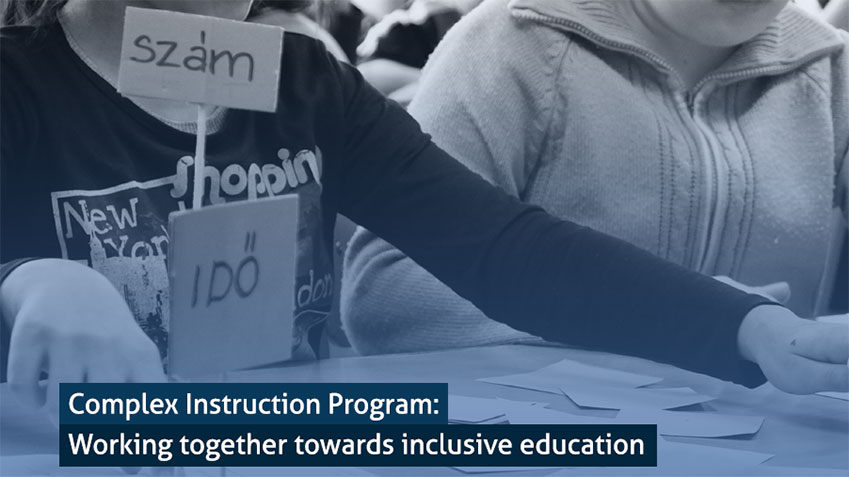In its socially and economically disadvantaged Hungarian region with over 60% of citizens belonging to Roma minority, Béla Altalanos Iskola has recently launched an innovative experience of education that looks forward to improve and broaden the learning experience for children.
The “Complex Instruction Program” consists on giving pupils the chance to enhance their social, intellectual and affective skills through an innovative learning approach, which consists in multiple ability assignments, group-work and status mitigation. Most importantly, this pedagogical programme creates a more equitable classroom’s atmosphere, makes pupils active actors of their own learning and radically changes the teaching perspective by allowing appreciation and evaluation of a variety of skills. The programme follows the official curricula of the school; it addresses problems with children’s behavior and motivation to learn, by assigning group-work and individual tasks that are open-ended and differentiated; it suppresses status differences in the classroom by enhancing self-confidence over specific contributions. This methodology assumes an ideological turn of how we look on pupils, especially disadvantaged ones: through it, every child is capable of learning, aiming high, and being intrinsically skilled thanks to the constant cooperation with classmates and the good outcome of the task assigned not only for their own but also for the group. On the other hand, teachers can address the specific learning needs of the students more directly and rely on peer learning.
While the lack of didactic instruments to address the diverse needs of the pupils remains a problem in many countries, the Hungarian case study convincingly demonstrates that the Complex Instruction Program can be a rich tool for heterogeneous classrooms attended by students with a wide range of educational needs and differentiated backgrounds.
The case study of the Hejökeresztúr Primary School was analyzed in a research paper introducing the conclusion of a short-term research project, which was conducted in the spring of 2016. Published by Centrum pre výskum etnicity a kultúry (CVEK- Slovakia) and supported by the Think Tank Fund – Open Society Institute.
Further suggested reading: Manual for Mayors on improving the living conditions of the Roma people.




